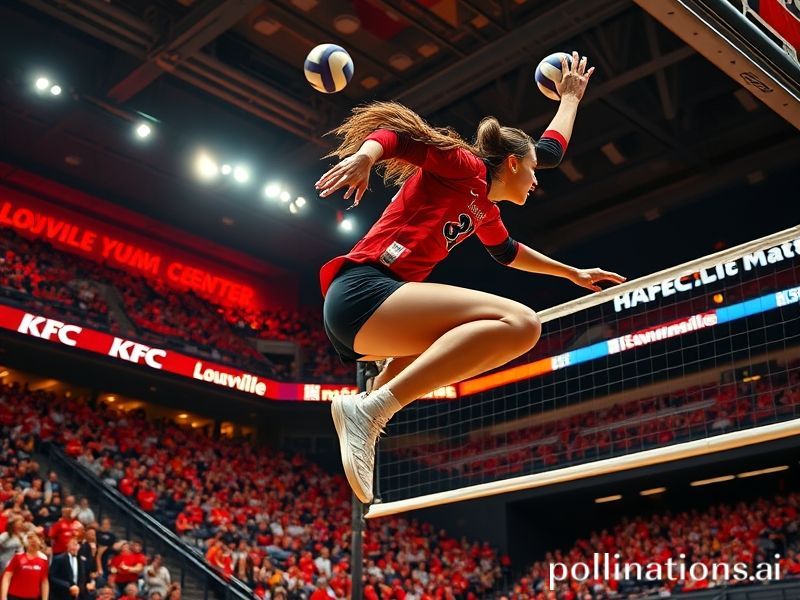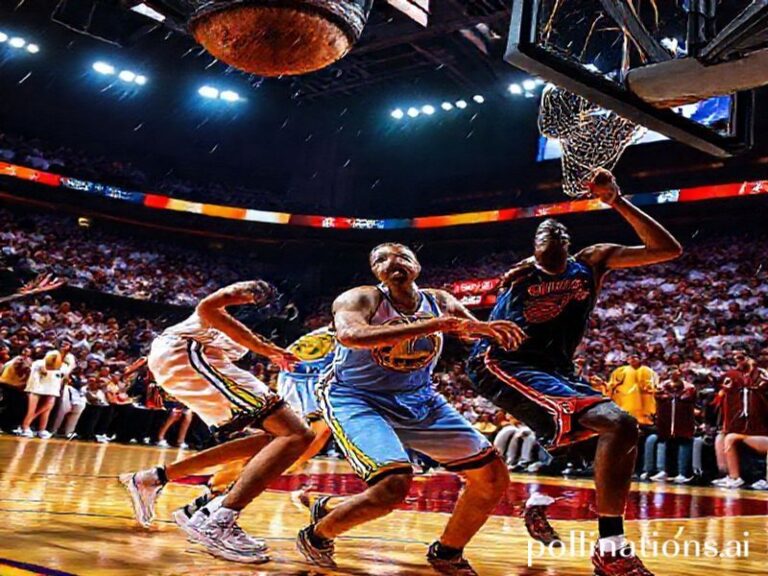Louisville Volleyball: How a Kentucky Gym Quietly Became a Geopolitical Playground
From the banks of the Ohio, a polite Midwestern roar rises, and the rest of the planet—busy stockpiling canned beans for the next geopolitical hiccup—barely notices. Yet Louisville volleyball, that tidy constellation of 18-to-22-year-olds who still believe in hydration and pre-game playlists, is quietly staging a small coup on the order of things. While the world obsesses over which septuagenarian will next command the nuclear football, the Cardinals are busy weaponizing a 9’10” antenna and reminding everyone that vertical leaps, not vertical missiles, still win the occasional set.
To the uninitiated, Louisville is merely another dot on the American collegiate map, famous for bourbon, horse racing, and a basketball arena named after a pizza chain. But step into the KFC Yum! Center on a Thursday night and you’ll witness something that looks suspiciously like diplomacy in sneakers. The roster is a miniature UN: a libero from São Paulo who speaks Portuguese, English, and fluent eye-roll; a middle blocker who grew up spiking balls over what used to be the Berlin Wall’s shadow; and, for added spice, a setter whose parents fled Caracas with nothing but a volleyball and a dream of reliable electricity. They all converge under the same cardinal-red banner, proving that nationalism is far more palatable when it comes with rally towels.
Globally, the implications are almost comically disproportionate. In Europe, where club volleyball budgets rival the GDP of island nations, scouts now treat Louisville’s gym like a pop-up Tiffany’s. Asian streaming platforms—desperate for content that isn’t a dating show or a slow-motion train derailment—pay real money to broadcast Cardinal matches at 3 a.m. local time, because nothing says “escape” quite like watching a 6’3” engineering major reject a Serbian opposite into next week. Meanwhile, back in the States, the NCAA quietly counts foreign television rights money the way medieval monks once counted indulgences: with reverence, parchment, and a complete lack of irony.
The sport itself is undergoing a soft-power makeover. Where once volleyball languished in the shadow of glitzier cousins—football with its concussions, basketball with its sneaker empires—it now functions as a low-stakes proving ground for geopolitical one-upmanship. When Louisville sweeps a Brazilian team in December, the post-match handshake looks less like sportsmanship and more like a treaty signing. The losers still smile, but you can almost hear them calculating exchange rates on the flight home.
And what of the players? They navigate a surreal economy in which tuition is remitted in exchange for vertical jump measurements, and Instagram followers have become a more stable currency than the Turkish lira. One sophomore outside hitter recently monetized her serve-receive tutorial into a side hustle that pays better than most entry-level jobs in her hometown—an economic model Adam Smith never imagined, but TikTok did. Meanwhile, the head coach, a man who can diagram a rotation on a cocktail napkin yet struggles to operate the office Keurig, fields calls from agents on three continents offering “brand alignment opportunities.” Somewhere, a marketing algorithm is deciding whether an ankle-brace sponsorship plays well in Jakarta.
All of this unfolds beneath the long fluorescent yawn of an American coliseum, where the beer is overpriced but at least it’s cold, and where the national anthem still plays before first serve, just in case anyone forgot which empire built the broadcast satellites. The crowd, equal parts bourbon aficionados and bewildered exchange students, clap on the downbeat—an international faux pas, but no one minds. Half the arena is live-tweeting; the other half is trying to explain to visiting uncles why a yellow card is not, in fact, a parking violation.
So while diplomats elsewhere parse communiqués nobody believes, Louisville volleyball keeps its own score: sets won, passports stamped, futures mortgaged or minted in real time. The net may only be three feet high, but it stretches across oceans. Every dig is a tiny act of defiance against entropy; every kill, a reminder that gravity—like most international agreements—can be negotiated if you jump high enough. And when the final whistle blows, the players line up, slap hands, and pretend for a moment that the world’s problems can indeed be solved in five sets or fewer. It’s a delusion, naturally. But on some nights, delusion spikes harder than truth.







